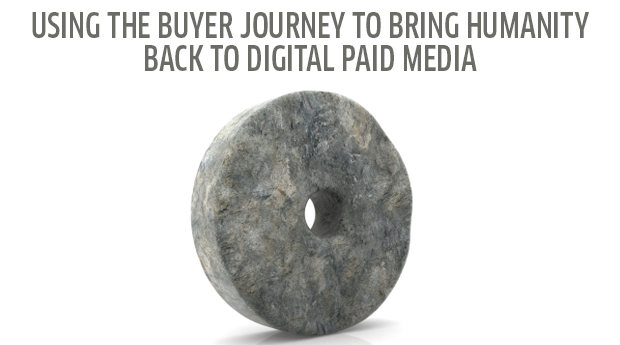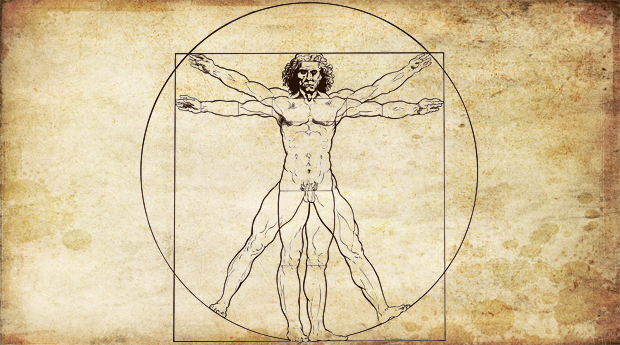Success Is a Process

Success is a difficult thing to quantify. It’s a lot like the present – it’s hard for us to really understand the moment that we’re in when the lines between what’s past and what’s future are so blurred.
So when people ask “How do you become successful? What are the steps I need to take to achieve success?” they’re asking the wrong questions. Their mindset is flawed. They’re trying to follow a roadmap to a singular destination, when success, like the present, is not a concrete moment in time but an ever-evolving process.
Respecting the Art of Web Copywriting

Writing copy for marketing campaigns is modern day poetry when it’s done right. Great copy engages emotionally. It persuades, entices, entertains, and informs. And nowhere is there more copy, or more important copy, to be written than on a brand new website.
Yet copy is the most overlooked aspect of many design projects. Copywriters all too often don’t get the respect or credit they deserve. The truth is that, when done right, a website is a digital novel. It invokes great storytelling to communicate a specific brand message to an audience.
Most clients realize they need help crafting that message during the branding stage. They realize they need help with design, development, and marketing campaigns. However, too many tend to think that they can write their own website copy. Whether they’re a Fortune 100 or an emerging start up, they all assume they can and should own this.
They shouldn't.
Reinventing PPC

PPC - three powerful letters that have changed marketing forever. PPC is power personified. PPC is agile. PPC has turned the advertising world on its head over the past 10+ years.
Yet, PPC is largely viewed as a direct response medium -- an auction-based channel that lives solely on Google SERPs. This point of view may have been partially accurate years ago, but today it’s outdated and extremely limiting. Even the term PPC isn’t entirely accurate. It ignores so many aspects of how marketers can use paid strategies to engage with their audience.
We don’t live in a single interaction world – we never have. We live in a multi-device, multi-medium, offline and online convergent world where the Buyer Journey is infinitely complicated. This is where, not just PPC, but digital Paid Media shines. It’s not utilized this way very often, but when it is, it’s incredibly effective.
Click here to download the full eBook or read on below.
Holy Brand Resurrection: Top Candies That Reappear on Halloween

Every Halloween, there is a celebration of all things that go “yum!” in the night, as we delight in our favorite candies. The average household spends $44 a year on candy for trick-or-treaters, with over 2 billion total spent on the holiday. There are a number of year round favorites that children (and many adults) look forward to indulging in, such as M&M’s, Kit Kats, Reese’s Cups and Hershey bars to name a few. But then, there are those candies that have been long forgotten that find new life come October 31.
Along with ghosts and mummies and vampires, a few candy brands are resurrected every year. Appearing suddenly from dusty convenience store shelves and drafty warehouses, these candies can be found in the bags, pillowcases and plastic pumpkins of school children. Whether trick or treat, here are a few of the brands that we notice always seem to appear out of nowhere every Halloween.
The True Measure of a Man in the Digital Age

Defining a life well lived was simpler before the digital age. Things like happiness, providing for your family, integration into your community – and let’s face it, just survival & reproduction, could easily define success in life.
Many would argue these still define a good life, but the world has changed and is immensely more complicated.
There are seven billion people on the planet. We face digital and sensory overload, being exposed to over 5 million ads per year. We each watch 3000 hours per year of TV. We have weapons that could annihilate the entire world many times over. We send 400 million tweets per day. We “Like” something on Facebook over 30 billion times per week. The environment is disintegrating before our eyes. Consumerism is a like a sugar high for our self esteem. Factory farms ruin the environment and create hell on earth for our animal friends. Technology will soon outpace our ability to manage, understand, and co-exist with our own inventions.
Communities and families are fractured – especially in Western civilizations. Gone are the days and where communities were really communities. We’re a collection of houses with Wi-Fi connections.
We’re closer to our digital families than our real families many times – or we at least seek their approval more. Getting liked on Facebook or being retweeted carries more social equity than real life interactions.
I’m not criticizing digital or social media, but I am asking a question.
Why Marketing to Millennials Is Just Like Marketing to Everyone Else

"Don’t you want kids to be healthy so they can live a long and healthy life?” questioned 9-year-old Hanna Robison to McDonald’s CEO Don Thompson, making the head of one of the largest corporations in the world uneasy and struggle for an answer like a child caught with his hand in the cookie jar. Before, such questions could easily be bypassed with a patronizing response and a Happy Meal. Today, not so much.
Hannah is part of the Millennial audience, young upstarts who are more skeptical and informed than past generations due to a little thing called the Internet. Not only does she have the opportunity to ask such a question, but she also has the right to be taken seriously.
This is the problem that brands are facing in the Information Age as they are constantly caught off-guard by consumers who now have just as much power as a CMO. How can brands deal with Millennials? Well first, beyond technology and social media, we need to take a look at what they want from the brands they patronize.